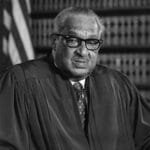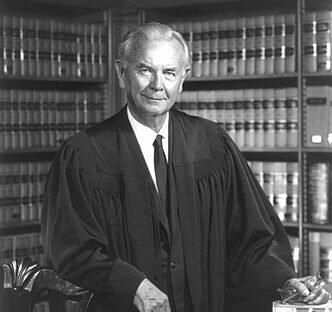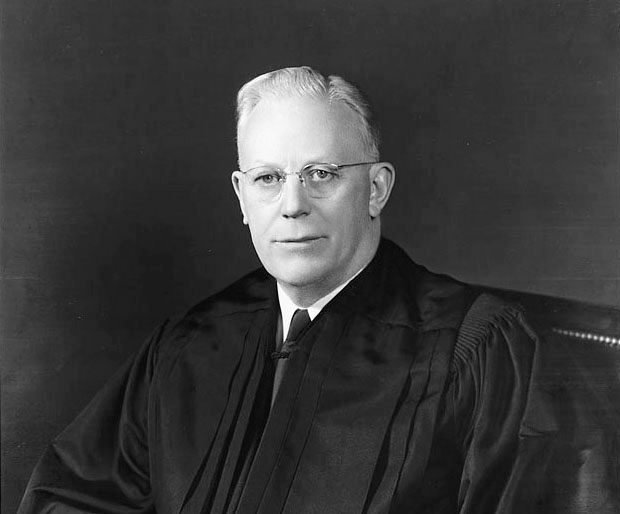 Justice Potter Stewart, appointed by President Dwight D. Eisenhower in 1958, served on the Supreme Court until his retirement in 1981. Known for his pragmatic and moderate approach, Stewart played a key role as a swing vote during a tumultuous period of American legal history. His decisions often defied easy categorization, reflecting a commitment to judicial restraint and case-by-case analysis.
Justice Potter Stewart, appointed by President Dwight D. Eisenhower in 1958, served on the Supreme Court until his retirement in 1981. Known for his pragmatic and moderate approach, Stewart played a key role as a swing vote during a tumultuous period of American legal history. His decisions often defied easy categorization, reflecting a commitment to judicial restraint and case-by-case analysis.
Stewart is perhaps best remembered for his statement in Jacobellis v. Ohio (1964), a First Amendment case dealing with obscenity, where he famously remarked, “I know it when I see it,” in describing the challenges of defining obscenity. Beyond First Amendment issues, Stewart contributed significantly to rulings on privacy and civil liberties. In Griswold v. Connecticut (1965), he dissented, believing the Court was overreaching, but later supported privacy rights in Roe v. Wade (1973).
Stewart also shaped criminal justice reform, particularly in Miranda v. Arizona (1966), which established Miranda rights. He believed in a balanced interpretation of the law, seeking to uphold individual freedoms while maintaining societal order. Retiring at the age of 66, Stewart’s nuanced judicial philosophy left a lasting imprint on the Court.









